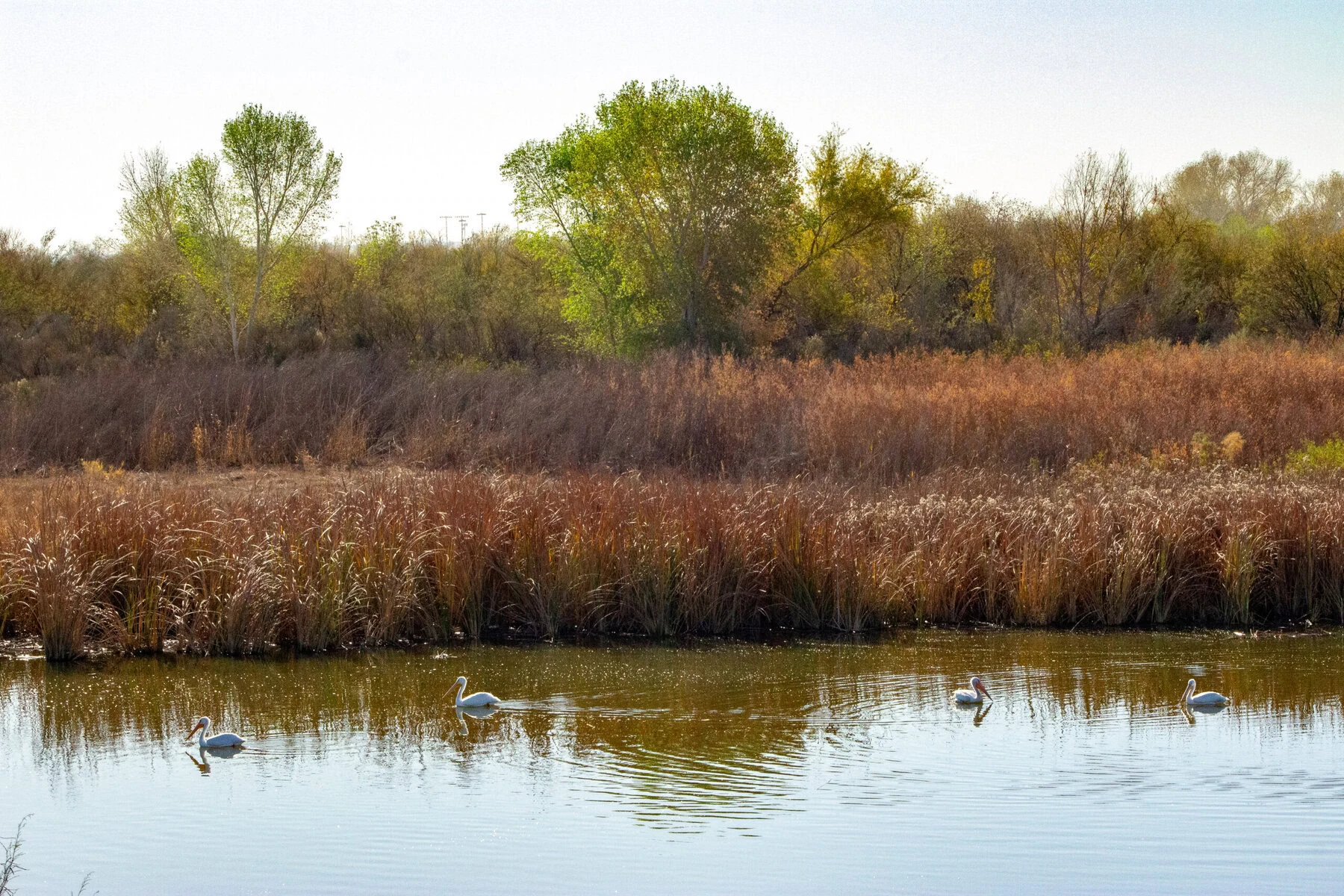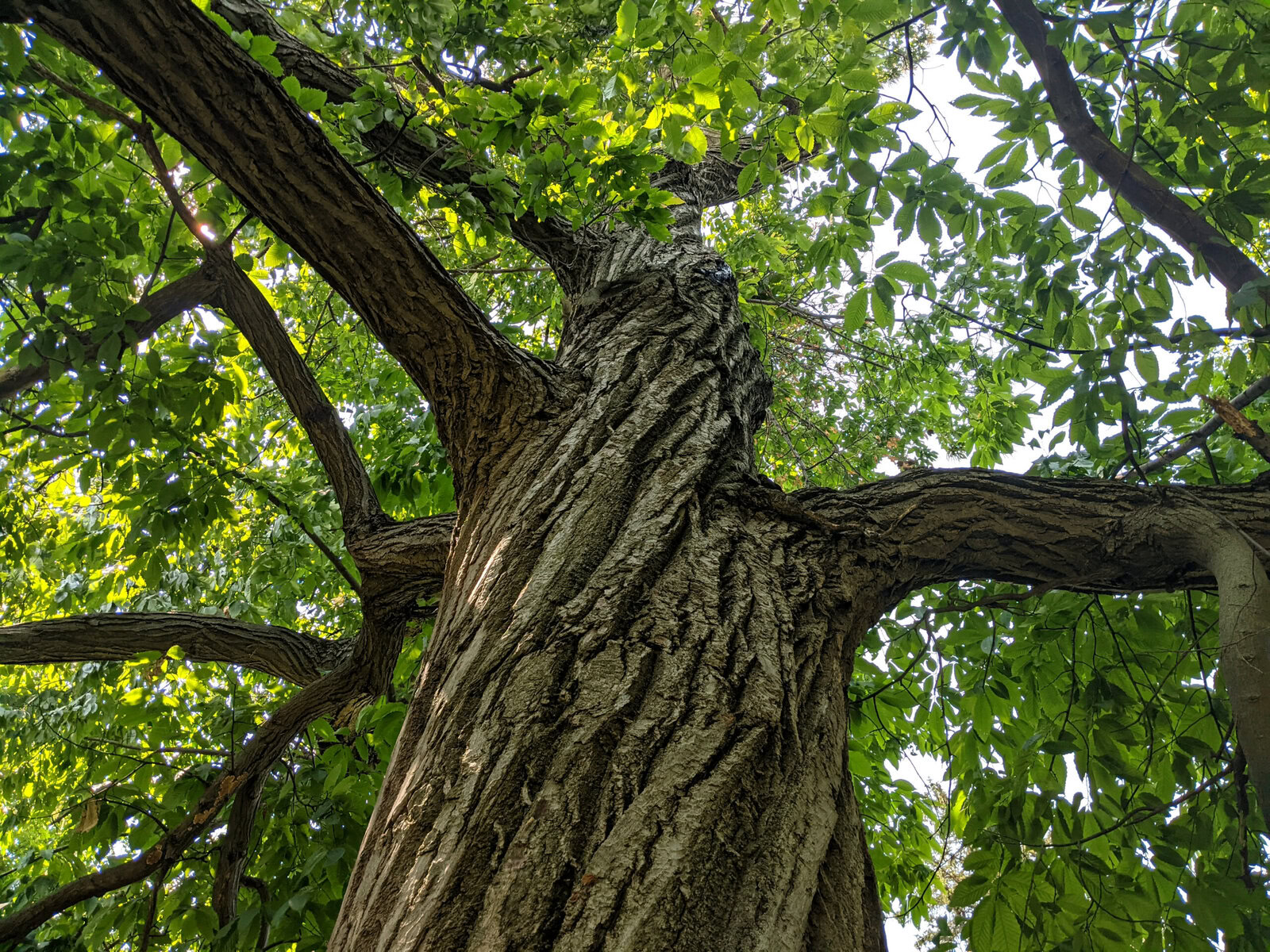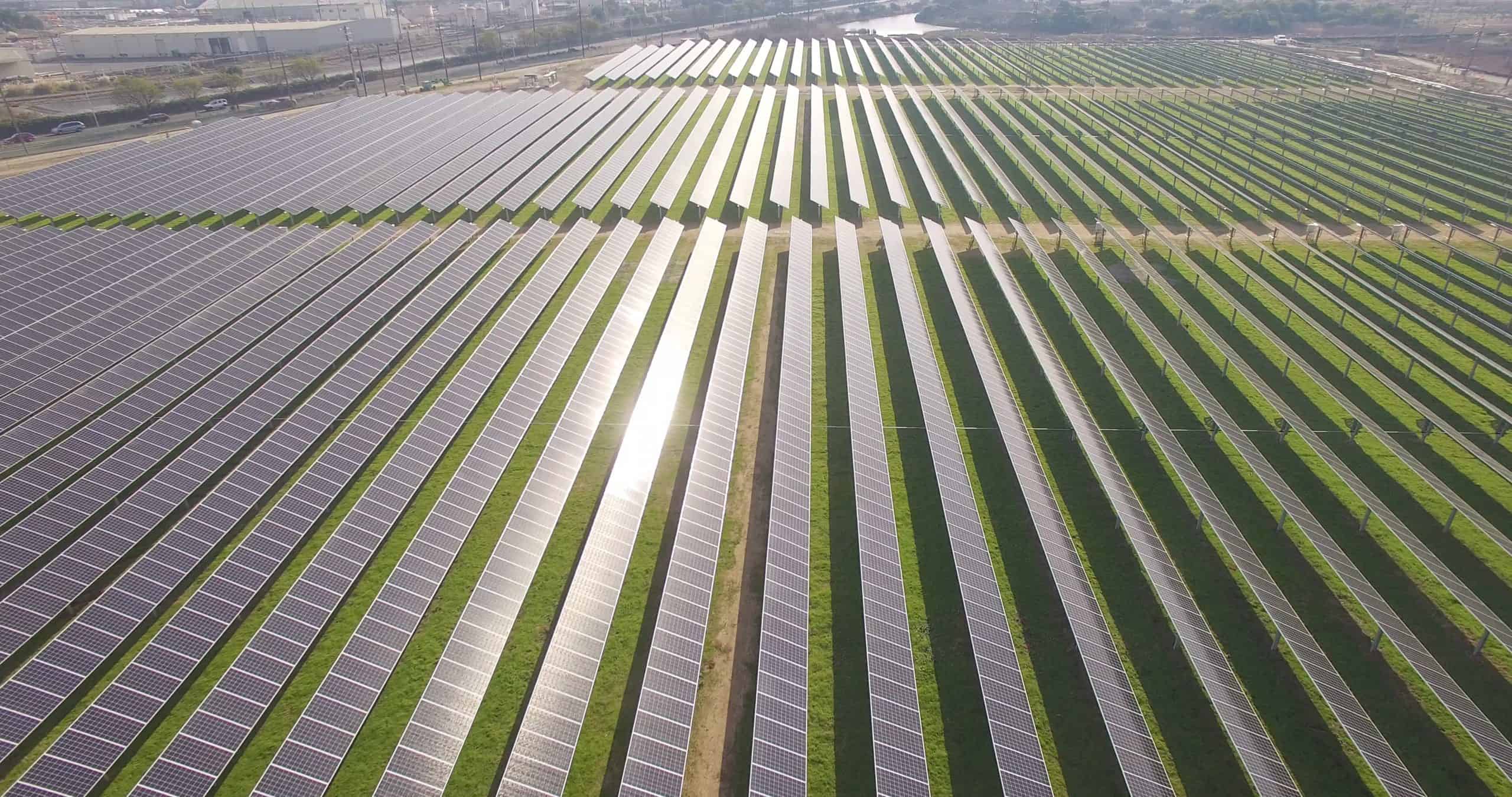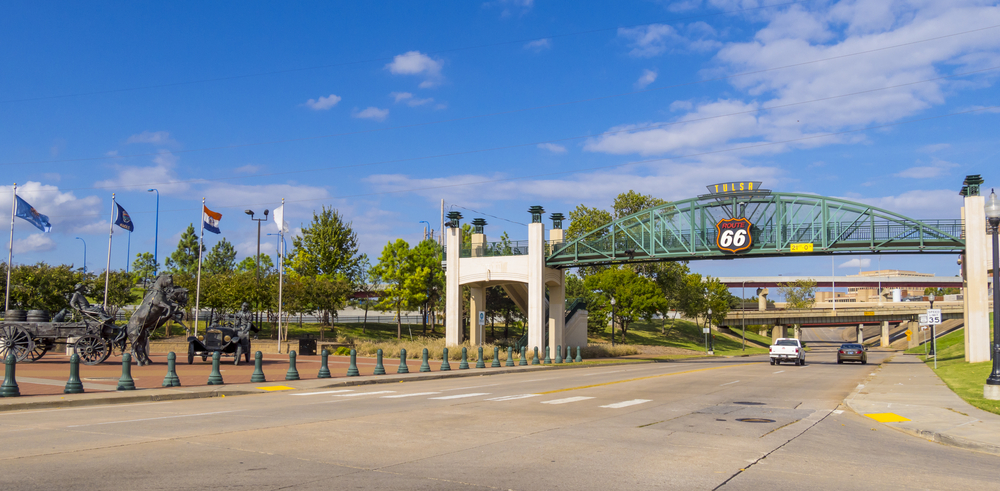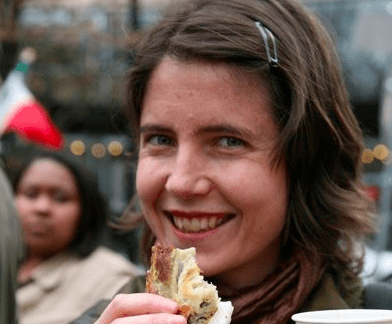When Malcolm Shabazz Hoover and Mirabai Collins broke ground on the Black Futures Farm in January, it was the first time either of them had farmed on their own. On their one-acre plot in Portland’s Brentwood-Darlington neighborhood, the couple — with the help of a few interns — grows everything from purple king pole beans and heirloom tomatoes (trellised on string so they’ll climb upwards) to delicata and patty-pan squash, corn, okra, cabbages and zucchinis.
“So many zucchinis. It might as well be a zucchini farm!” Mirabai laughs. They sell their produce via a small CSA program and several BIPOC farmers’ markets around town.
Hoover and Collins are part of a new generation of Black farmers returning to the land to exercise their right to Black food sovereignty. Formally defined in 2007 at the Nyéléni Forum for Food Sovereignty in Mali, food sovereignty is the right of people to determine their own food and agricultural systems, and have healthy and culturally appropriate food produced through ecologically sound and sustainable methods. People who have food sovereignty reject the notion that food is a commodity, and support local farmers and food providers instead of large agri-businesses. Charlie Smith, co-director of the Portland-based Black Food Sovereignty Coalition, puts it more succinctly: “Food sovereignty is people, place and economic opportunities.”
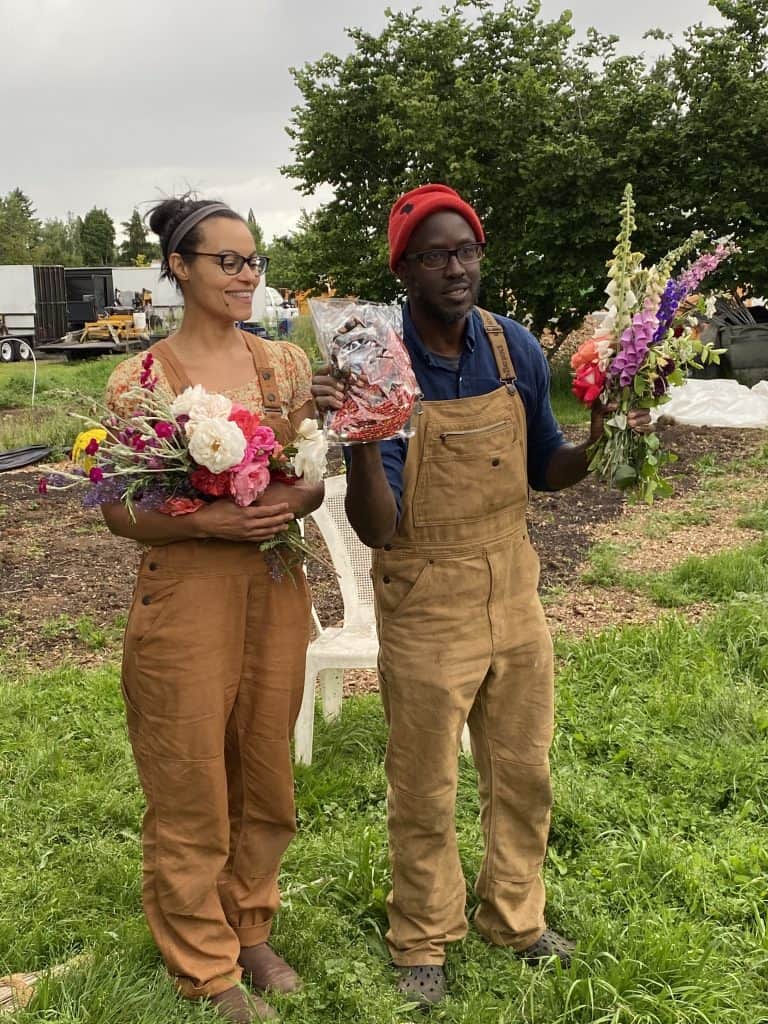
Hoover, 50, found his way to farming almost by accident. A U.S. Navy veteran, he worked in city government and as a school teacher in Oakland before taking a job at the Oregon Food Bank in 2017. Adjacent to the Food Bank was a farm named Unity Farm run by Art Shavers and Shantae Johnson. During his breaks, Hoover would walk over and chat with them, and help them weed when they asked him to. “Bro, we love talking to you, but this is hard work,” Hoover remembers Shavers saying. “If you’re going to be out here, you need to help.”
Though both his parents had grown up on farms, it wasn’t until these afternoons spent digging in the soil with his friends that Hoover realized how therapeutic gardening could be. He was hooked.
Hoover also works at Impact NW, a homelessness nonprofit with offices across the street from a 13-acre farm. “I felt a real connection to the land and asked what it would take for us to occupy it,” says Hoover. With the help of the Black Food Sovereignty Coalition, who provided advice and infrastructure, Collins and Hoover took over stewardship of one of the 13 acres, and Black Futures Farm was born.
Weighed down by negative news?
Our smart, bright, weekly newsletter is the uplift you’ve been looking for.The couple did have some farming experience. Hoover, who took Oregon State University’s Master Gardener program, helped run a VA pilot program to teach veterans to be farmers. Collins had interned on several organic farms and worked on cannabis farms in Humboldt County, California. She also teaches horticulture classes in prisons for a nonprofit called Growing Gardens. Though their CSA is small by most standards — only 17 families are enrolled this year — all are Black or have Black children, and one third of these members pay with SNAP assistance (food stamps). It’s important to both Hoover and Collins that their CSA benefit those most in need. Hoover’s dad was a Black Panther and his parents were involved in the Black Arts Movement. For him, farming is personal and political.
“I love growing food. It’s incredibly healing to me,” he says. “It’s been said that if you can’t feed the people, you can’t lead the people. So in these times, we are creating something for what’s next, for Black people.”
Cultivating farmers
Black Futures Farm belongs to the Black Food Sovereignty Coalition (BFSC). Founded in 2018, it builds on a decade of work by local Black farmers, food justice activists and community organizers. It serves as a hub for Black and brown communities, helping them confront the systemic barriers that make food, place and economic opportunities inaccessible.
BFSC provides technical and professional assistance to farms and food businesses and helps them incubate their ideas, says co-director Eddie Hill. But Hill and his team at BFSC are also looking to make systemic changes. “If we’re looking at the larger food system and best practices, it’s not just: ‘Hey, if you get Black people to start farms, that will solve the problem,’” says Hill. “No, you have to have them participating in all parts of the food system: manufacturing, composting, packaging, branding, transportation.”
https://www.instagram.com/p/CDAY934BtMo/
Black farmers and food purveyors need concrete support for basic business and logistical challenges: storage, distribution and financing; Good Agricultural Practices (GAP) certification; and Hazard Analysis Critical Control Points (HACCP) training, an internationally recognized method of identifying and managing food safety-related risk. “These systems don’t exist in our community right now,” says Hill.
In addition to helping Black-run farms with lease agreements and food safety protocols, the BFSC works with Mudbone Grown to organize an annual “Back to the Root” conference for Black growers, producers, educators, advocates and ranchers. It also runs programs like Grandma’s Hands, where Black grandmothers in Portland share family recipes and food traditions, cook together and, these days, take turns hosting a monthly community dinner on Zoom. The program, funded by the Oregon Department of Agriculture, allows the grandmas to buy all their produce for the monthly community meal from Black- or brown-run farms. BFSC is also in negotiations for a centrally located food processing facility in Portland, where Black and brown farmers and food entrepreneurs can process vegetables and make and package products like salsa, juices, and bone broth for local grocery store chains.
The roots of sovereignty
Black farmers were once far more prevalent in America than they are today. Following Emancipation, even after the “40 Acres and a Mule” promise was overturned by Andrew Johnson in 1865, formerly enslaved Blacks were able to own land — and many did. By 1920, according to the 1930 Census of Agriculture, there were roughly one million Black farmers in the U.S., comprising 14 percent of all the farmers in the nation.
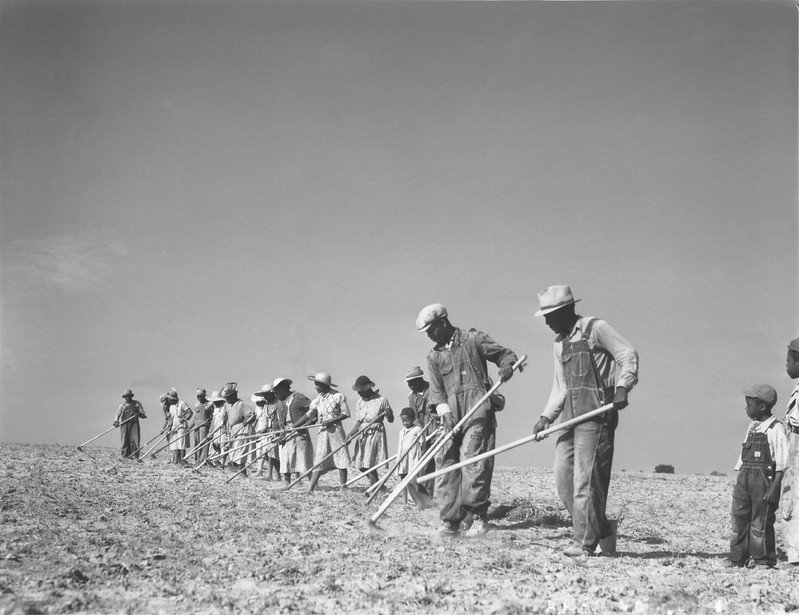
Today, there are just 48,700 Black farmers in the United States, making up roughly 1.4 percent of the country’s 3.4 million farmers. There are many reasons for this decline, but as Vann R. Newkirk II recently wrote in the Atlantic, much of the land was wrested away from Black farmers by White people via legal, coercive and sometimes violent means. “A war waged by deed of title has dispossessed 98 percent of Black agricultural landowners in America,” according to Newkirk.
Perhaps surprisingly, much of that was taken away during the height of the Civil Rights Movement. Black farmers lost around six million acres of land between 1950 and 1969, according to Joe Brooks, the former president of the Emergency Land Fund. “That’s a staggering amount of land loss during the heart of the Civil Rights period, when African Americans were struggling for social and political and economic rights,” says Savi Horne, founder and executive director of the Land Loss Prevention Project in North Carolina.
There have been some attempts at land reparations, most notably a lawsuit against the USDA in 1997 that awarded a $2 billion settlement to thousands of Black farmers and their families. Horne and others who are actively helping Black farmers keep their land say that this lawsuit did not go far enough. Tens of thousands who lost their land and, along with it, their food sovereignty, have still never been compensated for it.
https://www.instagram.com/p/CEIP3tOBebI/
An encouraging sign is more localized efforts at helping Black farmers like Collins and Hoover reclaim food sovereignty in their communities. Many organizations and farms came together to help Black Futures Farm operate with almost no overhead in its first year. The property — which came with 18 fruit trees including apples, figs and cherries — is being leased to the couple at a low cost by Portland Parks and Recreation. The starts and seeds were donated by MudBone Grown, Red Barn Farms, Side Yard Farms, Portland State University, the OSU Master Gardeners and Territorial Seed, among others. The couple also has subsidized water bills this year.
“A lot of people gathered around the idea of letting go of what had long been a White-held space, and handing it over to the stewardship of Black people,” Collins says. “The farm has become what it is because people worked hard and believed in what it could be. We had no money or resources starting out, so all of what you see there is the result of people pulling together — or, essentially, what real community looks like.”
Next season, they’ll have to buy their own seeds and starts and pay more rent. “It’ll be more organized for that reason,” Collins says. “We’ll have a crop plan, we’ll order the things we want to grow. This season was very much a space, really hard work, and community. And probably some lunacy. And definitely some arguments.”
“Yeah. We’re going to have an argument today,” Hoover teases.
“We are,” Collins agrees, both of them laughing.
The couple were married two months ago — on the farm, dressed in overalls. They often finish each other’s sentences.
They seem ideal partners in other ways, too. Both are passionate about growing their own food and feeding Portland’s Black community. Once they are more established and have a stronger foundation (and once the pandemic is over), they plan to bring more Black and brown folks onto the farm for education, community-building, art, training, certification and other pathways to food sovereignty. Just last week, Vanessa Chambers from Grandma’s Hands came to Black Futures Farm with two of her granddaughters to pick produce and be filmed for a segment to promote Oregon-grown foods in public schools. The farm has even had interest from an investor: Tampa Bay Buccaneers football player Ndamukong Suh, who attended Portland’s Grant High School and whose mom lives in the city.
An urban farm with a CSA in the Pacific Northwest is nothing unique, Collins points out. “But a Black-centered, Black-run horticultural space that is wide open to the imaginings, hard work and possibilities of Black people, is — and I think that is more what Black Futures is about.”



